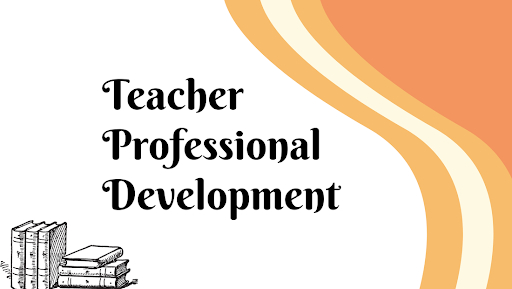We all know teacher professional development or training days can be hit or miss. Sometimes you leave with new ideas, sometimes you just go because you have to, and sometimes it’s just boring. But it doesn’t have to be like that. When schools are busy, teacher training often gets pushed aside. But we all agree it’s important. Good training helps teachers and their students.
Math & ELA | PreK To Grade 5
Kids see fun.
You see real learning outcomes.
Watch your kids fall in love with math & reading through our scientifically designed curriculum.
Parents, try for free Teachers, use for free
This post is all about ways to improve teacher training. It’s for teachers who want to feel excited about teaching again and school leaders who want to ensure training is useful.
Let’s get to the heart of it and find some good tools and ideas to make teacher training something to look forward to.
What is Teacher Professional Development?
Teacher professional development, or TPD, isn’t just one thing. It’s not only sitting in a workshop listening to someone talk. It’s a bunch of different activities with the same goal: to help teachers teach better. This can be training for teachers to learn new teaching methods or courses where they dig into their teaching subjects. Sometimes, it’s just teachers taking charge of their learning, finding new stuff to read, or trying new ideas in their classrooms.
Why is Professional Development Important for Teachers?

1. Boosts Teacher Skills: Professional development keeps teachers up-to-date on new research on how children learn, emerging technology tools for the classroom, new curriculum resources, and more. This makes them effective educators equipped to prepare students for the future.
2. Improves Student Learning: When teachers get better at their jobs, students learn more effectively. It’s a direct link: skilled teachers lead to successful students. Professional development is designed to give teachers the teaching strategies and tools to help their students succeed.
3. Keeps Teachers Fresh: Like in any profession, teachers can feel burned out if they don’t have chances to grow and learn. Professional development opportunities can reignite their passion for teaching and bring new energy to the classroom.
4. Encourages Reflective Practice: Professional development encourages teachers to reflect on their work and find ways to improve. This reflective practice can lead to innovative teaching methods that cater to the diverse needs of students.
5. Supports School Improvement Efforts: Effective professional development is critical to school improvement. When teachers learn and improve, they can contribute to the school’s mission and goals in a more impactful way.
6. Promotes Better Outcomes Across the Board: The ripple effect of professional development for teachers goes far beyond individual classrooms. It can lead to widespread academic improvements, better school ratings, and a more robust education system.
Related Reading: What Are Teaching Aids? Types, Objectives & Examples
6 Best Resources for Teachers’ Professional Development
1. Online Teacher Professional Development
A. SplashLearn
SplashLearn stands out by offering a unique, interactive learning platform that is not just for students but also a goldmine for teacher development. SplashLearn takes a gamified approach to mathematics and reading, making it a fun and engaging way for students to learn. But it’s not just about the students; teachers can greatly benefit from the platform’s insights into student learning patterns, performance analytics, and customized lesson planning tools.
By integrating SplashLearn into professional development programs, educators can gain firsthand experience with innovative EdTech tools, learn how to effectively incorporate gamified learning into their curriculum, and leverage data to tailor their teaching strategies to meet the needs of individual students.
B. EdWeb
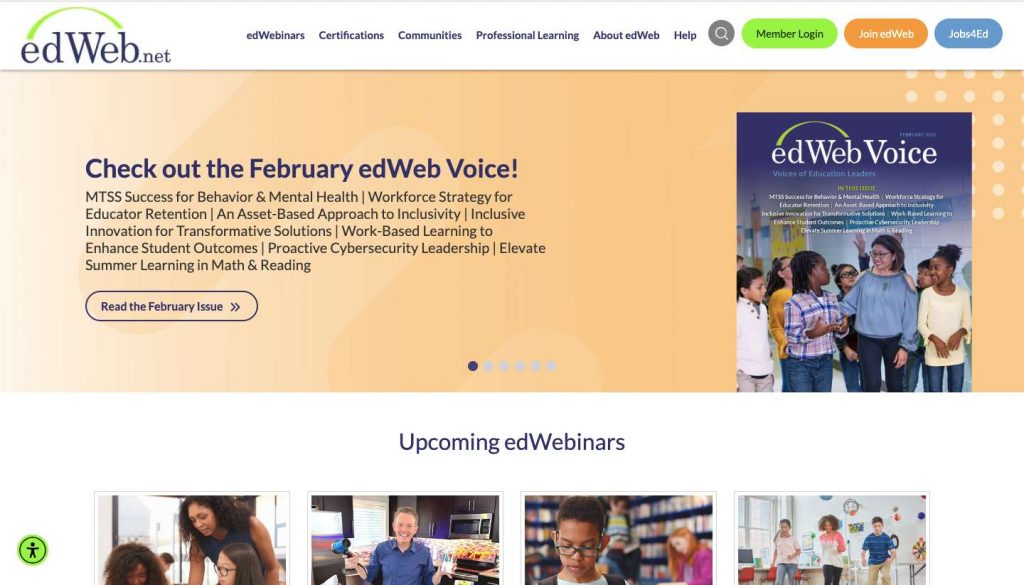
EdWeb is a professional social network that caters uniquely to the needs of educators by offering a blend of free webinars and a community-based platform. EdWeb is a great TPD resource because it emphasizes sharing best practices and fosters discussions on educational trends and challenges. The community aspect allows teachers to connect with peers across the globe, exchange ideas, and receive support in a collaborative environment. This platform is ideal for teachers looking for a more interactive form of professional development where they can actively participate in their learning journey.
C. Coursera
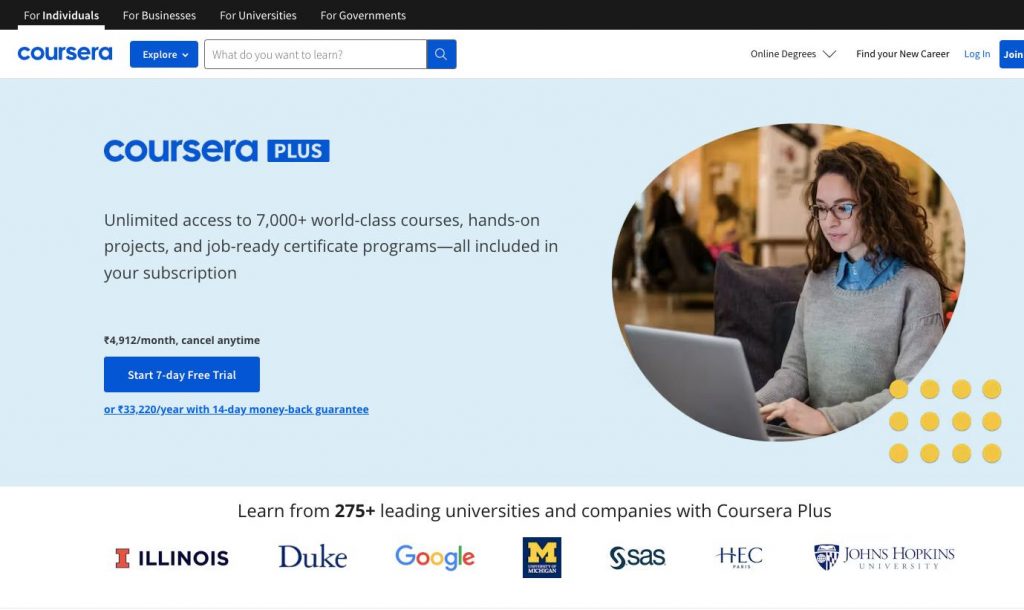
Coursera provides access to a vast library of courses from universities and colleges worldwide. It is a valuable resource for teachers seeking to deepen their knowledge in specific subject areas or pedagogical strategies. The strength of Coursera lies in its academic rigor and the diversity of courses available, many of which are developed by leading educators and institutions. This platform is perfect for teachers who want to pursue advanced studies or explore new educational paradigms from the comfort of their homes, thereby enhancing their teaching methodologies and student learning experiences.
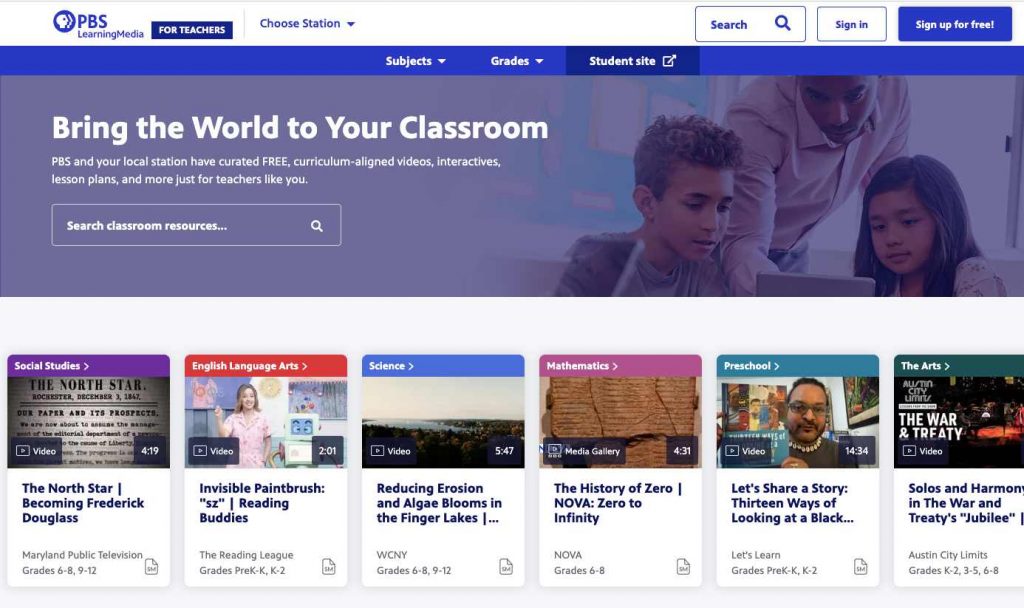
PBS LearningMedia offers a unique approach to teacher professional development by providing free access to a rich collection of standards-aligned videos, interactive tools, and lesson plans. This resource supports teachers in integrating digital media into their teaching, making lessons more engaging and interactive for students. The platform is especially valuable for its high-quality educational content that can be easily incorporated into the curriculum, helping teachers enhance their instructional methods and engage students in deeper learning.
E. EdX
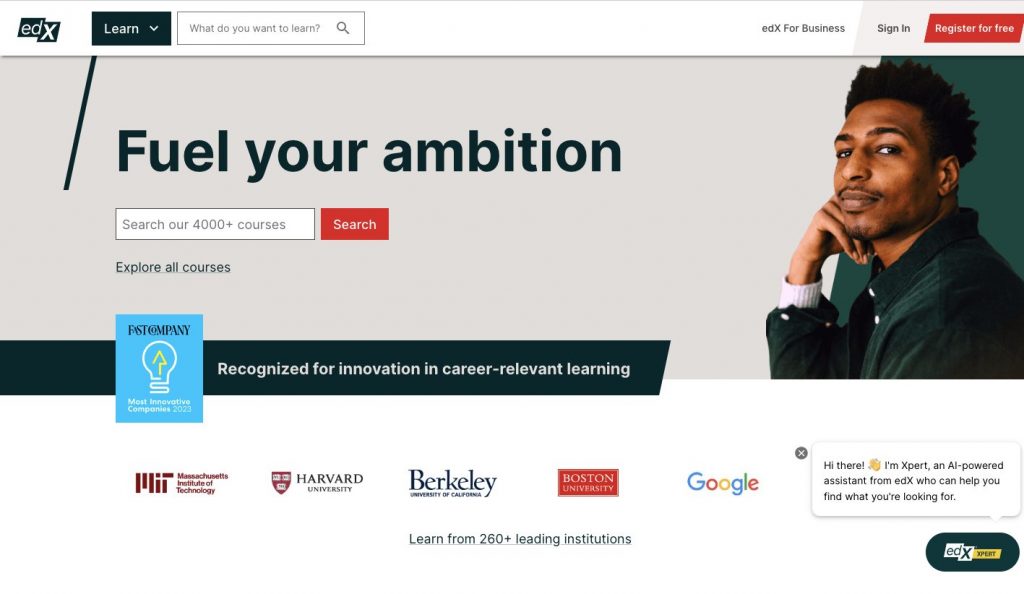
Similar to Coursera, EdX is an online learning platform that offers courses from prestigious universities worldwide. EdX’s focus on the latest educational research and teaching methodologies is what sets it apart. This platform particularly benefits teachers keen on staying at the forefront of educational innovation and research. By providing courses that cover the most current trends and practices in education, EdX helps educators to continually update their skills and methodologies, ensuring they can offer the best possible education to their students.
F. ed2go
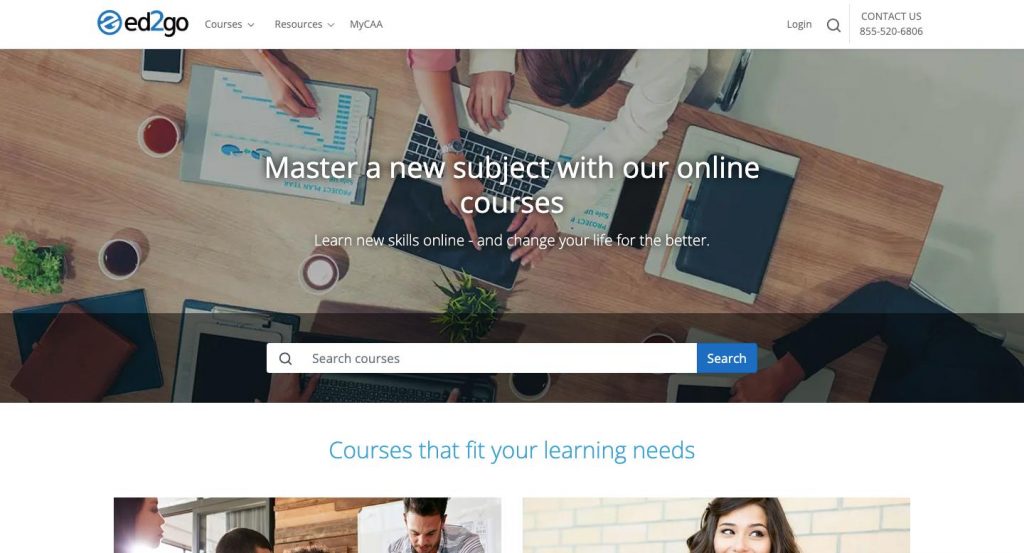
ed2go stands out as one of the best options for online professional development for teachers because of its wide range of courses specifically tailored for educators. It offers practical, actionable training that teachers can directly apply in their classrooms. Whether it’s classroom management techniques, strategies for integrating technology into lessons, or methods for enhancing student engagement, ed2go focuses on providing teacher-focused training that addresses teachers’ real-world challenges. Its courses are designed to be flexible, fitting into the busy schedules of educators who need to balance their professional development with their teaching responsibilities.
Related Reading: Best Websites for Teachers
2. Social Media & Communities

Joining educational communities on platforms like Twitter, Facebook, and LinkedIn offers immense value for teachers seeking professional development examples. These platforms facilitate networking, sharing of resources, and collaborative learning, making them powerful tools for free professional development for teachers.
Educators can follow educational thought leaders, participate in subject-specific groups, and join hashtag discussions to stay updated on the latest trends and strategies in education. For example, Twitter chats hosted by education organizations provide a lively forum for discussing innovative teaching practices and challenges faced in the classroom.
3. Books

Books remain a cornerstone for teacher continuing education, offering in-depth insights into pedagogy, classroom management, educational technology, and curriculum development. Must-read titles for educators include:
- “The Classroom Management Book” by Harry K. Wong and Rosemary T. Wong – A practical guide to creating a structured, positive classroom environment.
- “Mindset: The New Psychology of Success” by Carol S. Dweck – Explores the impact of growth mindset on teaching and learning.
- “Integrating Technology in the Classroom” by Boni Hamilton – Provides strategies for effectively incorporating technology into teaching.
- “Curriculum 21: Essential Education for a Changing World” edited by Heidi Hayes Jacobs – Offers insights into modernizing curriculum to meet today’s educational demands.
4. Teaching Conferences

Attending teaching conferences is crucial for professional networking, discovering new research, and learning about innovative teaching practices. Conferences bring together educators from various backgrounds to share experiences and best practices, making them rich sources of professional development examples. They offer workshops, seminars, and keynote speeches on the latest educational trends, providing opportunities for teachers continuing education and professional growth. Educators leave these events inspired, with new ideas and strategies to apply in their classrooms.
5. Higher Education
Pursuing advanced degrees or certificates in education can significantly contribute to a teacher’s professional development. Opportunities for higher education in teaching methods, curriculum design, educational leadership, and specialized subjects enable educators to deepen their expertise and enhance their career prospects.
Many universities and colleges offer flexible study options, including online courses and part-time programs, to accommodate working teachers. These qualifications are examples of professional development that not only enrich the teacher’s knowledge and skills but also improve the educational outcomes for their students.
6. Webinars

Webinars have emerged as a convenient and relevant option for busy teachers seeking flexible learning opportunities. They cover various topics, from classroom management to the latest educational technology, offering free professional development for teachers.
Platforms like EdWeb, ASCD, and TeachersFirst regularly host webinars led by experienced educators and experts. These sessions allow teachers to learn new strategies and earn professional development credits without leaving home or school. Webinars are perfect for teachers looking to stay current with educational trends and practices without the time commitment required for more traditional forms of professional development.
How to Make Teacher Professional Development Effective: 5 Strategies
Teacher professional development is essential for educators to stay current with the latest educational trends, techniques, and technologies. However, for it to be truly effective, it must cater to teachers’ diverse needs and learning styles. Here are five strategies that can significantly enhance the effectiveness of professional development for teachers:
1. Personalization
Personalization means recognizing that every teacher has unique strengths, challenges, and areas of interest. A one-size-fits-all approach is less likely to make an impact compared to programs that tailor learning experiences to individual needs.
For example, offering workshops or modules allows teachers to focus on developing the most relevant skills. An elementary school teacher might choose a workshop on innovative reading strategies, while a high school math teacher might benefit more from a course on integrating technology into calculus lessons.
2. Collaboration
Collaboration involves creating opportunities for teachers to learn from one another, share experiences, and work together on common goals. This can be achieved through structured peer observation programs, where teachers visit each other’s classrooms and share constructive feedback.
Another example is forming professional learning communities within the school, where teachers meet regularly to discuss challenges, share professional development examples, and support each other’s growth. This approach enhances learning and fosters a strong sense of community and shared purpose among staff.
3. Practical Application
For professional development to be truly beneficial, it should focus on practical application. Teachers value learning that they can immediately implement in their classrooms. This could involve hands-on workshops where teachers create lesson plans incorporating new teaching strategies or technologies.
For instance, a workshop on blended learning could have teachers design a unit that combines online and in-person instruction, providing a direct link between the professional development session and classroom application.
4. Feedback and Reflection
Feedback and reflection are critical components of effective professional development. Teachers should have opportunities to receive constructive feedback on implementing new strategies and reflect on their practice. This can be facilitated through coaching or mentoring programs, where experienced teachers or educational coaches observe classroom lessons and provide feedback.
Additionally, encouraging teachers to keep reflective journals where they document their experiences and reflect on their growth can be a powerful tool for continuous improvement.
5. Continuous Learning
Finally, professional development should instill the idea of lifelong learning. This means going beyond occasional workshops and looking for ongoing learning opportunities.
For example, teachers can be encouraged to enroll in online courses that offer new insights into their subject areas or pedagogical methods. Schools also support teachers in attending conferences or obtaining advanced degrees. Emphasizing the importance of being a lifelong learner model for students and the value of continuous education and adaptation in a rapidly changing world.
Related Reading: Types of Educational Philosophies for Teachers
Conclusion
Exploring these resources for teacher professional development can significantly enrich an educator’s skill set and teaching methods. By staying committed to continuous learning and leveraging these tools, teachers can ensure they provide the best possible education to their students.
Frequently Asked Questions (FAQs)
What is effective teacher professional development?
Effective professional development involves structured training and learning opportunities that enhance teachers’ skills and knowledge, directly impacting their teaching quality and student learning outcomes.
What kind of PD do teachers want?
Teachers often seek professional development relevant to their teaching context, offer practical strategies they can apply in the classroom, and support their career growth through collaborative learning and networking opportunities.
How do you plan professional development for teachers?
Planning professional development for teachers involves identifying their needs, setting clear learning objectives, choosing appropriate formats (workshops, courses, webinars, etc.), and ensuring the content is relevant and applicable to their teaching practice.

















